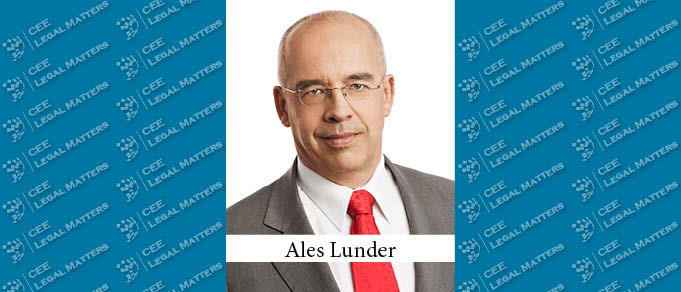In view of the upcoming parliamentary elections competition among the political parties is intensifying, while the Slovenian economy struggles to recover, according to CMS Partner Ales Lunder.
"Slovenia’s president has recently announced the date for the next parliamentary elections, which will be held in April 2022," Lunder reports. According to him, certain political tensions are characteristic of this process. "The recently leaked recordings involving Environment Minister Andrej Vizjak are the source of additional tensions. The recordings reportedly date back to 11 years ago and imply that Vizjak, a close ally to the Slovenian prime minister, was allegedly encouraging tax evasion and referring to his potential influence on judges," he says. "While the legality and authenticity of the recordings can be challenged, they still raise doubts about respecting the rule of law by major influential politicians of the country."
"In addition to that, last week, the prime minister’s party started an assault on the energy sector by dismissing, in an apparently coordinated action, three CEOs of state-owned energy companies," Lunder notes. "These developments create an unpleasant political atmosphere, indicating that political parties are interfering in the economic sector out of predominantly political reasons. The notion of 'corporate governance' seems to be alien to both ruling and opposition parties in Slovenia," he adds.
"In terms of legislative updates, the parliament has been busy addressing COVID-19 related issues. The Constitutional Court has declared several regulations unconstitutional, finding that the adopted measures lacked sufficient legal grounds," Lunder reports. "In the meantime, the recent proposal on gaming law has resulted in public outrage," he adds. "The proposed amendments would significantly liberalize the gaming sector, allowing foreign entities to obtain a license in this sphere. At this moment, it’s practically impossible for foreign entities to have a majority stake in the gaming business in Slovenia." However, Lunder notes that the legislative proposal does not enjoy popular support, rendering it unlikely to be adopted by the government in light of the upcoming elections.
As for the economic sector, Lunder mentions that the transactions that were on hold due to the pandemic are eventually moving forward. "At the beginning of October, Slovenian company Jub was sold to Australian strategic investor Dulux (a Nippon Paint Holdings company). In addition, Sberbank Europe has been sold to Serbian bank Aik Banka."
Lunder explains that "in the midst of economic recovery, it is difficult to pinpoint any specific industries that are particularly active. All sectors are busy at the moment, be it production, real estate, the financial industry (NPLs), or start-ups." He adds that the tourism sector has been rather active due to the Slovenian government’s initiative to issue vouchers to Slovenian citizens and permanent residents, enabling them to spend money on domestic travel. "However, if COVID-19 measures are reintroduced without any new supporting measures, the tourism sector will suffer as well," he states. According to Lunder, the automotive sector experienced significant hurdles as well, due to the shortage of semiconductors. "This has a very negative influence on Slovenia, which is an automotive industry country. Even recently, Revoz, a Renault subsidiary company in Slovenia, had to reduce its workforce by 350 employees. I wouldn’t say that we have a recovery in that sense," he concludes.

















